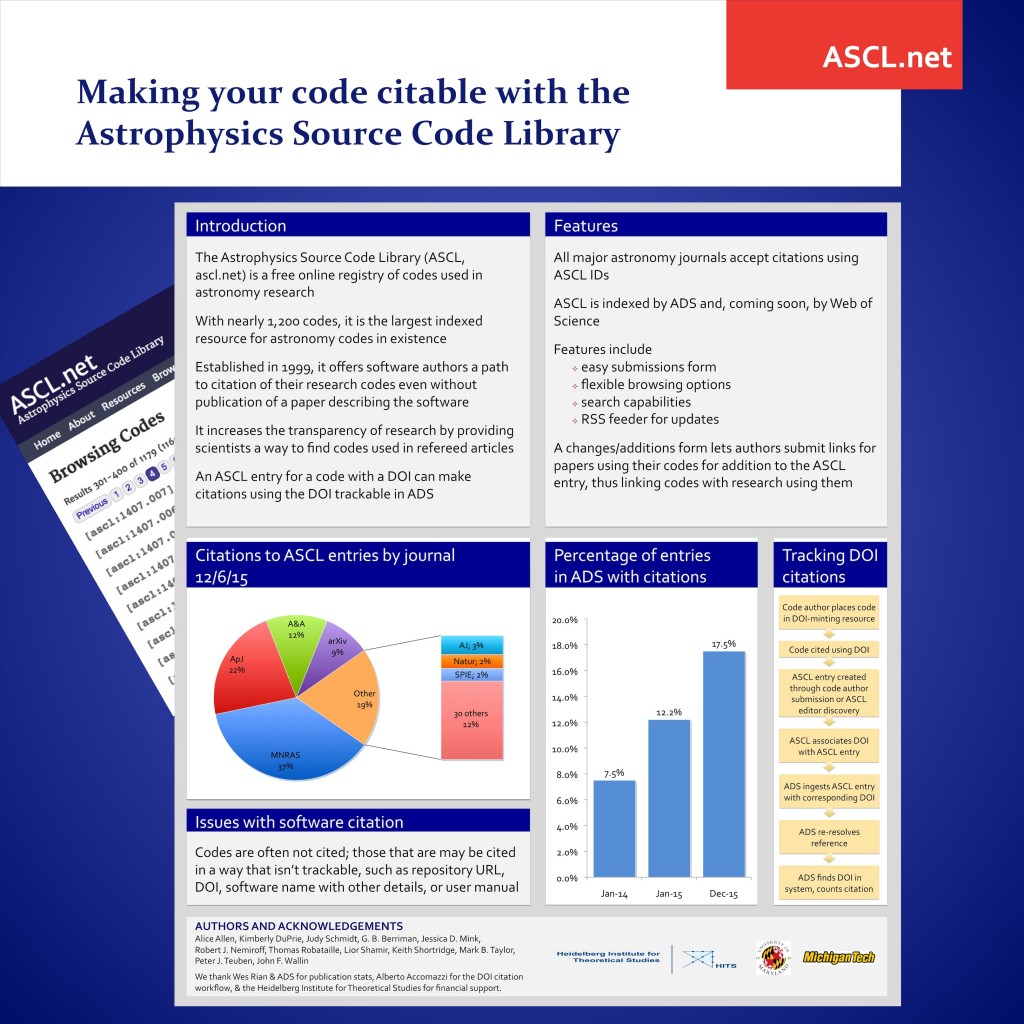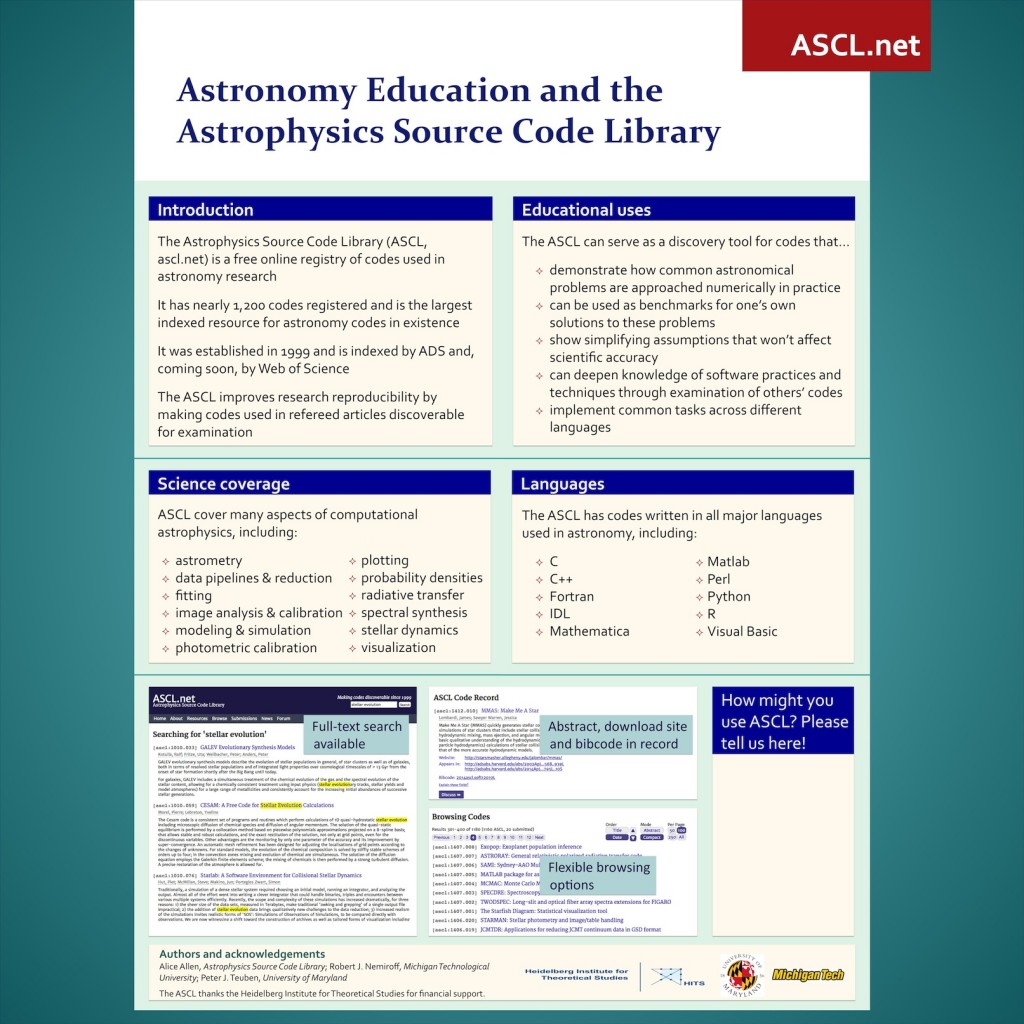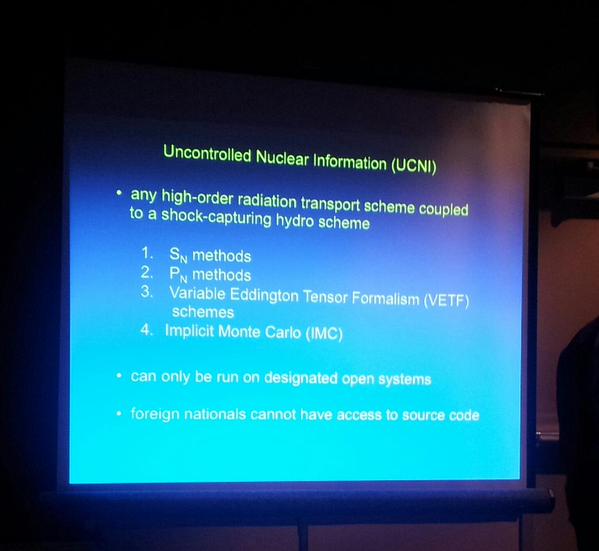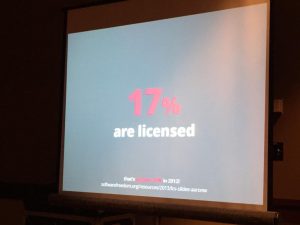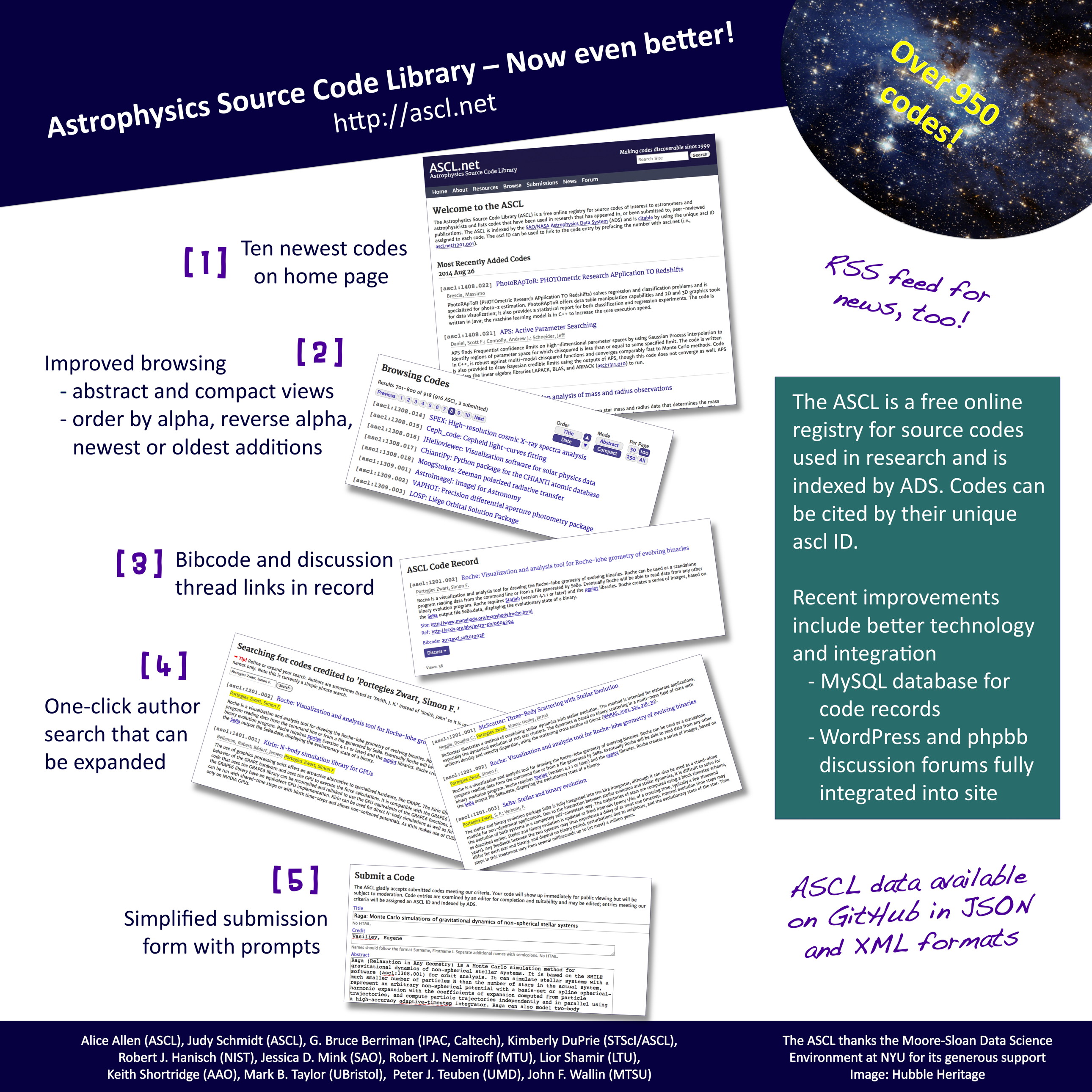And here it is: the Big List o’ Software Stuff at next month’s AAS meeting. If I missed anything, please let me know in the comments below; thanks!
TUESDAY, 3 JANUARY 2017
Workshops
Introduction to Software Carpentry, 8:00 am ‐ 5:30 pm, Appaloosa 1
Using Python for Astronomical Data Analysis, 8:30 am ‐ 5:00 pm, Texas C
WEDNESDAY, 4 JANUARY 2017
Splinter meeting: Flexible Multi‐dimensional Modeling of Complex Data in Astronomy, 9:30 am ‐ 11:30 am, Grapevine 4
Poster presentations
146.04 Gemini Planet Imager Calibrations, Pipeline Updates, and Campaign Data Process
146.07 Reprocessing of Archival Direct Imaging Data of Herbig Ae/Be Stars
146.13 Finding Planets in K2: A New Method of Cleaning the Data
146.17. Searching for Wide, Planetary-Mass Companions in Archival Spitzer/IRAC Data
154.25 Automated Detection of Dwarf Galaxies and Star Clusters in SMASH through the NOAO Data Lab
154.27 On the Quantification of Incertitude in Astrophysical Simulation Codes
155.13 Spectro-spatial reconstruction of Wide Field Imaging Interferometry Testbed (WIIT) data
Oral presentations
Testing SMBH scaling relations using cosmological simulations and optical/near-IR imaging data, 10:00 am – 10:20 am, Grapevine C
An Empirical Examination of the NEOWISE Results and Data analysis, 10:50 am – 11:00 am, Texas 4
Data Simulation for 21 cm Cosmology Experiments, 2:40 pm – 2:50 pm, Grapevine C
THURSDAY, 5 JANUARY 2017
Poster presentations
Session 236: Computation, Data Handling, Image Analysis & Light Pollution (21 posters)
239.03, The era of synoptic galactic archeology: using HST and Chandra observations to constrain the evolution of elliptical galaxies through the spatial distribution of globular clusters and X-ray binaries
244.05, Three-Dimensional Simulations of the Convective Urca Process in Pre-Supernova White Dwarfs
Oral presentations
Mind the Gap when Data Mining the Ritter-Kolb Cataclysmic Variable Catalogue, 10:00 am – 10:10 am, Fort Worth 6
What drives the kinematic evolution of star-forming galaxies? 10:20 am – 10:30 am, Grapevine 2
Simulating Galactic Winds on Supercomputers, 2:50 pm – 3:10 pm, Grapevine A
Photometric Redshifts for High Resolution Radio Galaxies in the SuperCLASS Field, 3:10 pm – 3:20 PM, Grapevine A
FRIDAY, 6 JANUARY 2017
Special Session: Perspectives in Research Software: Education, Funding, Reproducibility, Citation, and Impact, 10:00 am – 11:30 am, Grapevine 2
Poster presentations
335.05, When Will It Be …?: U.S. Naval Observatory Religious Calendar Computers Expanded
336.09, Variable Stars as an Introduction to Computational Research
345.03, An ALMA Survey of Planet Forming Disks in Rho Ophiuchus
345.19, Chemistry of protostellar envelopes and disks: computational testing of 2D abundances
348.06, Computing Architecture for the ngVLA
Oral presentations
K2 red giant asteroseismology using Bayesian Asteroseismology data Modeling (BAM), 10:24 am – 10:36 am, Grapevine B
Upgrades to MINERVA control software, 2:00 pm – 2:10 pm, Texas D
SATURDAY, 7 JANUARY 2017
Special Session: Statistical, Mathematical and Computational Methods for Astronomy (ASTRO): SAMSI 2016-17, 10:00 am – 11:30 am, Grapevine 2
Workshop: Hack Together Day, 10:00 am ‐ 7:00 pm, Grapevine 4 (Info and registration)
Also of likely interest is the Special Session on The Value of Astronomical Data and Long Term Preservation that will take place on Thursday, 4 January from 10:00 am – 11:30 am in Texas 3.
